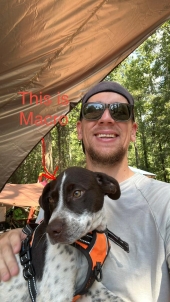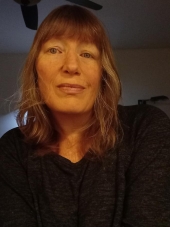




"Turn your face to the sun and the shadows fall behind you." ~Maori Proverb
www.permi-eden.com
 2
2








"Turn your face to the sun and the shadows fall behind you." ~Maori Proverb
www.permi-eden.com




 1
1












 3
3




 1
1








Any stream or agricultural ditch in the United States is under the jurisdiction of the US Army Corps of Engineers (USA/CE) and the Environmental Protection Agency (EPA). In my opinion, having a running stream on your property is the equivalent of giving the USA/CE and EPA free access to your land at any time under any pretenses that wish to use.




Michael Qulek wrote:When it came time to buy our land, I wrote down the criteria that were important to me. First was that I wouldn't immediately quit my day job, but use my earnings to fund the land. Secondly, I wanted to be less than 1/2 tank of gas away from the land so I could travel to it from our suburban home. It had to be remote enought for hunting, which really means no next-door neighbors looking in our windows.
I bought an atlas for our state and drew a 200 mile radius circle around our home. I wrote a cover letter to realtors and shotgunned it to those in the areas I pinpointed in the atlas. I contacted a bunch, took a week off from work to view properties, and settled on one that met our needs. We've had our land for about 10 years now, slowly developing it into the self-sufficient permaculture homestead we first invisioned.
“The soil is the great connector of lives, the source and destination of all. It is the healer and restorer and resurrector, by which disease passes into health, age into youth, death into life. Without proper care for it we can have no community, because without proper care for it we can have no life.”
― Wendell Berry, The Unsettling of America: Culture and Agriculture

|
A magnificient life is loaded with tough challenges. En garde tiny ad:
Looking for cold-climate growers to join a GOOF livestream panel (Missoula)
https://permies.com/t/369111/cold-climate-growers-join-GOOF
|





